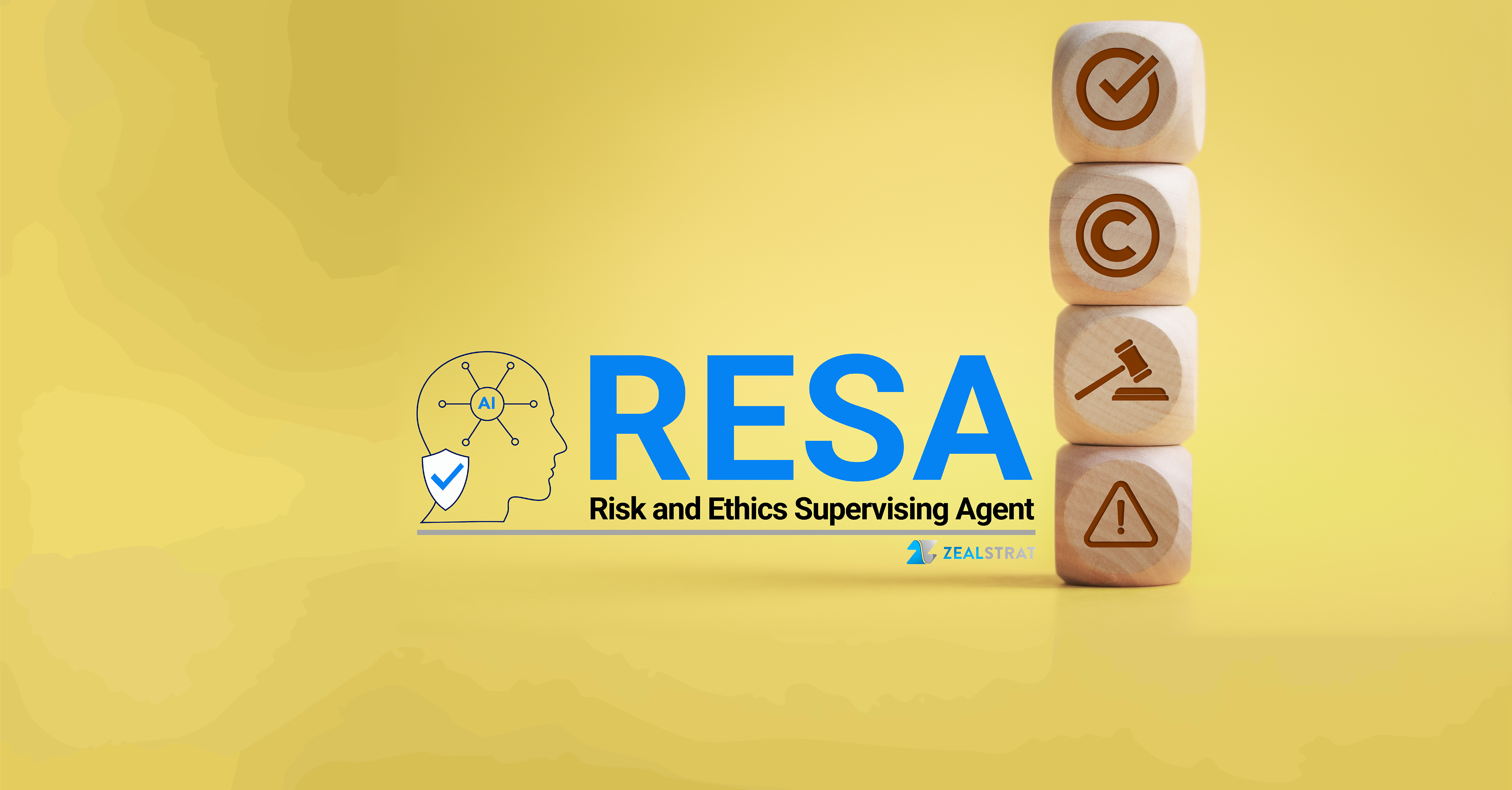-min.jpg)
Ensuring Ethical AI: The Value of Third-Party Assessments
In the rapidly evolving landscape of artificial intelligence, organizations face the critical challenge of ensuring their AI systems are developed, deployed, and used ethically. As AI becomes increasingly integrated into business operations and decision-making, the need for robust ethical oversight has never been more pressing. However, according to Harvard Law School's Alissa Kole, while 36% of S&P 500 companies mentioned AI in their earnings calls last quarter, only 13% of these companies have AI expertise on their boards (1). In addition to a greater need for internal AI expertise, companies can borrow a page from the finance world and consider the unique benefits of a third-party assessor.
Defining Ethical AI
“Ethics” can appear to be an ambiguous philosophical topic, but thankfully the Institute for Electrical and Electronics Engineers (IEEE) Standards Association (SA) provides a comprehensive framework for understanding and implementing ethical AI. A thorough overview of IEEE’s approach can be read here (2). With the availability of comprehensive frameworks like IEEE CertifAIEdTM, there is a clear opportunity for standards-based AI. For more information on the imperative of Ethical AI, please refer to our previous blog (3).
Lessons from Financial Auditing
While many organizations are committed to developing ethical AI, internal assessments may not be sufficient to ensure compliance and build trust with stakeholders. This is where third-party assessments play a crucial role. The importance of independent audits in finance provides a valuable analog for the benefits of third-party AI ethics assessments. In finance, a trusted accounting firm reviews and approves the financial statements of major companies, signaling confidence for stakeholders. While these firms may have excellent in-house accountants, a third-party brings distinct, unbiased perspectives.
As noted by the SEC's Office of the Chief Accountant:
"An independent, high quality audit improves the credibility of financial statements, reducing risk to investors, thereby lowering the cost of debt and the cost of equity for the company.” (4) Just as the finance world recognizes the value of unbiased perspectives in mitigating operational risks, the same concept is applicable to the growing AI industry.
A third-party assessment of AI ethics can:
-
Enhance Credibility: A standards-based independent evaluation can bolster internal and external stakeholder’s confidence in an organization's AI systems and practices. Trusted assessors can also help firms obtain trustmarks that serve as effective marketing material, particularly for ESG-focused clients and investors.
-
Mitigate Risks: Even for firms with robust internal AI expertise, independent assessments can identify ethical risks or vulnerabilities that may have been overlooked. As an aspect of human nature, organizations can become predisposed to accustomed processes, and it often takes a second opinion to identify biases and oversights. An independent assessor also brings a breadth of experience across clients, allowing best-practice sharing.
-
Ensure Compliance: As AI regulations evolve, keeping up with the legislative patchwork is increasingly complicated. A trusted expert’s guidance can help ensure thorough alignment with all relevant laws.
-
Drive Continuous Improvement: Working with a third-party assessor is a collaborative process that involves scrutinizing existing processes, improving organizational visibility to expose improvement opportunities.
Implementing Third-Party AI Ethics Assessments
Each organization’s path to leveraging third-party assessments for AI ethics may be different, but in general organizations should consider the following 5 step process:
-
Establish Ethical Guidelines: Develop a comprehensive AI ethics policy based on frameworks like the IEEE Ethically Aligned Design (5).
-
Choose Qualified Independent Assessors: Select independent experts with a deep understanding of AI technology, the ethical framework you have selected (e.g., IEEE), and the regulatory landscape.
-
Transparent Reporting: Share assessment results with internal and external stakeholders to build trust and demonstrate commitment to ethical AI. If awarded a certification / trustmark, share this on your website / social media.
-
Actionable Insights: Use assessment findings to drive improvement in your AI development and deployment practices. Recommendations derived from the assessment may reach beyond the scope of AI ethics into your core business operations.
-
Maintenance Assessments: Work with your assessor to conduct periodic follow-on assessments, particularly after any major systems changes, to keep pace with rapidly evolving AI technologies. These assessments validate both the AI system in scope and the broader AI ethics governance process.
The Role of AI Governance
An AI ethics assessment can help your organization develop effective AI governance, which is crucial for ensuring continued ethical development and deployment of AI systems. Organizations may struggle with AI implementation due to bureaucracy, lack of resources, lack of executive buy-in, or competing priorities. Companies often incorrectly believe in a tradeoff between business ethics and financial success. However, studies have shown the opposite effect. For example, public companies that cite ethics in their annual reports have been found to have statistically higher performance across key financial metrics. (6)
To address these challenges, a trusted advisor can help you with:
-
Creating an AI System Inventory: Developing a comprehensive catalog of all AI systems within your organization, including details on their purpose, risk assessment, and compliance status, is a crucial first step to a strong governance process.
-
Fostering Cross-Functional Collaboration: Part of a robust governance model are reporting lines that ensure stakeholders from across the organization are involved, not just technical teams.
-
Embedding Ethics in AI Development: Firms should integrate ethical considerations across their AI development lifecycle. Just as employees undergo ethics training, given AI’s role as a critical workforce tool, the same rigor should be applied to AI systems.
Conclusion
As AI continues to transform businesses and society, ensuring ethical compliance is paramount. By embracing independent evaluations, companies can demonstrate their commitment to responsible AI development, significantly mitigate risks to their business and to society, and ultimately contribute to a more ethical and trustworthy AI ecosystem. Even firms with robust internal AI expertise benefit from an outside perspective.
At ZealStrat, we're committed to helping organizations navigate the complex landscape of AI ethics. Our team of experts can guide you in implementing robust AI governance frameworks and in preparing for the comprehensive IEEE CertifAIEdTM certification. Together, we can work towards a future where AI not only drives innovation but also upholds human values and promotes societal well-being.
References
1 Harvard Law School Forum on Corporate Governance (2024). A new governance paradigm is necessary for AI-powered boards.
Available at: https://corpgov.law.harvard.edu/2024/04/21/a-new-governance-paradigm-is-necessary-for-ai-powered-boards/
2 C. Huang, Z. Zhang, B. Mao and X. Yao, "An Overview of Artificial Intelligence Ethics," in IEEE Transactions on Artificial Intelligence, vol. 4, no. 4, pp. 799-819, Aug. 2023, doi: 10.1109/TAI.2022.3194503.
Available at: https://www.computer.org/csdl/journal/ai/2023/04/09844014/1Fnr097UNd6
3 ZealStrat (2024). The Imperative of High Ethical Standards for AI in Business.
Available at: https://zealstrat.com/sightwise/blog/the-imperative-of-high-ethical-standards-for-ai-in-business
4 U.S. Securities and Exchange Commission (2021). The Importance of High Quality Independent Audits and Effective Audit Committee Oversight to High Quality Financial Reporting to Investors.
Available at: https://www.sec.gov/newsroom/speeches-statements/munter-audit-2021-10-26
5 IEEE Global Initiative on Ethics of Autonomous and Intelligent Systems. (2019). Ethically Aligned Design: A Vision for Prioritizing Human Well-being with Autonomous and Intelligent Systems, Version 2.
Available at: https://standards.ieee.org/wp-content/uploads/import/documents/other/ead_v2.pdf
6 Verschoor, C.C. A Study of The Link Between a Corporation's Financial Performance and Its Commitment to Ethics. Journal of Business Ethics 17, 1509–1516 (1998). Available at: https://www.jstor.org/stable/25073983
Posts

Revolutionizing AI Compliance: Introducing ZealStrat's RESA
Compliance = Competitive Advantage In today's rapidly evolving AI landscape, en....

Why Prediction Markets Outperform Traditional Surveys
Smarter Forecasts. Sharper Decisions. In an era where data drives decisions, bu....

Managing AI Risks in New Product Development
Artificial Intelligence (AI) is rapidly transforming New Product Development (NP....

AI and Ethics in Practice: Podcast Episode
Our CEO Dr. Ganesan Keerthivasan and our Head of AI Ethics Dr. Tom Tirpak recent....

Why MLOps is Required: The Mission Control Imperative
Taking to heart the advice of business leadership expert Simon Sinek, let's star....

AI System Inventories - The Foundation for Governance
In a conference room last week, a CTO asked her team a seemingly simple question....